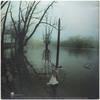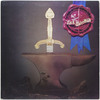Label: A & M Records (UK), AMLH 64515
Style: Symphonic Rock, Rock
Country: Perivale, London (born 18 May 1949)
Time: 44:40
Format: Flac Tracks 16/44,1 kHz
Size: 263 Mb
Solo Career:
In August of 1971 Wakeman left Strawbs and joined a group called Yes as a replacement for one of the original band members, Tony Kay. Wakeman’s first album with that group was released in early in 1972. The recording, called Fragile, drew praise as a classic example of progressive rock, and by 1972, the band was a worldwide sensation. Wakeman played with Yes until 1974 when Patrick Moraz replaced Wakeman who left the group to further his solo career. Wakeman returned to Yes in 1976 and remained with the group until the end of the decade, after which time he continued a sporadic association with the group.
Even during his years with Yes, Wakeman spent a great deal of time in solo recording sessions for A&M Records. His earliest releases received notable reviews and earned gold records. Six Wives of Henry VIII was released in January of 1973, and Journey to the Center of the Earth appeared in 1974. Journey, recorded with the London Symphony Orchestra and narrated by David Hemmings, was an original Wakeman composition, based on the Jules Verne novel by the same name. The recording topped the charts in England, and Wakeman performed the composition at London’s Royal Festival Hall on January 18, 1974. He recorded his next album, Myths and Legends of King Arthur and the Knights of the Round Table, with the English Chamber Choir in 1975. Myths received mixed reviews, and Wakeman recorded and released afourth album, No Earthly Connection, in 1976, shortly before he rejoined with Yes. His reunion with Yes was encouraged by the resurgence of longer, symphonic renditions by the group, music that was abandoned during Wakeman’s absence. The Wakeman charisma was seen especially on their 1977 gold album, Going for the One, and their platinum release, Tormato, in 1978. According to Irwin Stambler in Encyclopedia of Pop, Rock Soul, Wakeman returned to Yes because, “they were back to playing the kind of music they should be playing.” Wakeman also recorded two solo albums for A&M during the nextfewyears: CriminalRecordin 1977, and Rhapsodies in 1979.
In 1980 Wakeman left Yes once more and signed with Charisma Records. Later in 1990, he reunited with Yes co-founder Jon Anderson Bruford, to try to reignite Yes. Although the reunion failed to earn critical approval, the music received a warm reception from audiences. In 1989 Wakeman rejoined with his old Yes bandmates to form the group Anderson, Bruford, Wakeman, and Howe. The foursome released an album that sold over a million copies worldwide; they tou red extensively that year, and in 1991 their album, Union, sold over two million copies worldwide. Wakeman toured extensively throughout the United States with Yes in 1977, 1978, 1979, and again in 1991.
(www.encyclopedia.com/education/news-wires-white-papers-and-books/wakeman-rick)
Rick Wakeman - synthesisers, keyboards, grand piano
Gary Pickford-Hopkins - lead vocals
Ashley Holt - lead vocals
Geoffrey Crampton - lead and acoustic guitars
Roger Newell - bass guitar
Barney James - drums
John Hodgson - percussion
New World Orchestra, English Chamber Choir
Gary Pickford-Hopkins - lead vocals
Ashley Holt - lead vocals
Geoffrey Crampton - lead and acoustic guitars
Roger Newell - bass guitar
Barney James - drums
John Hodgson - percussion
New World Orchestra, English Chamber Choir
01. A1 Arthur (07:26)
02. A2 Lady Of The Lake (00:46)
03. A3 Guinevere (06:44)
04. A4 Sir Lancelot And The Black Knight (05:22)
05. B1 Merlin The Magician (08:51)
06. B2 Sir Galahad (05:51)
07. B3 The Last Battle (09:38)










Thanks 👍👏👏😍😍
ReplyDelete